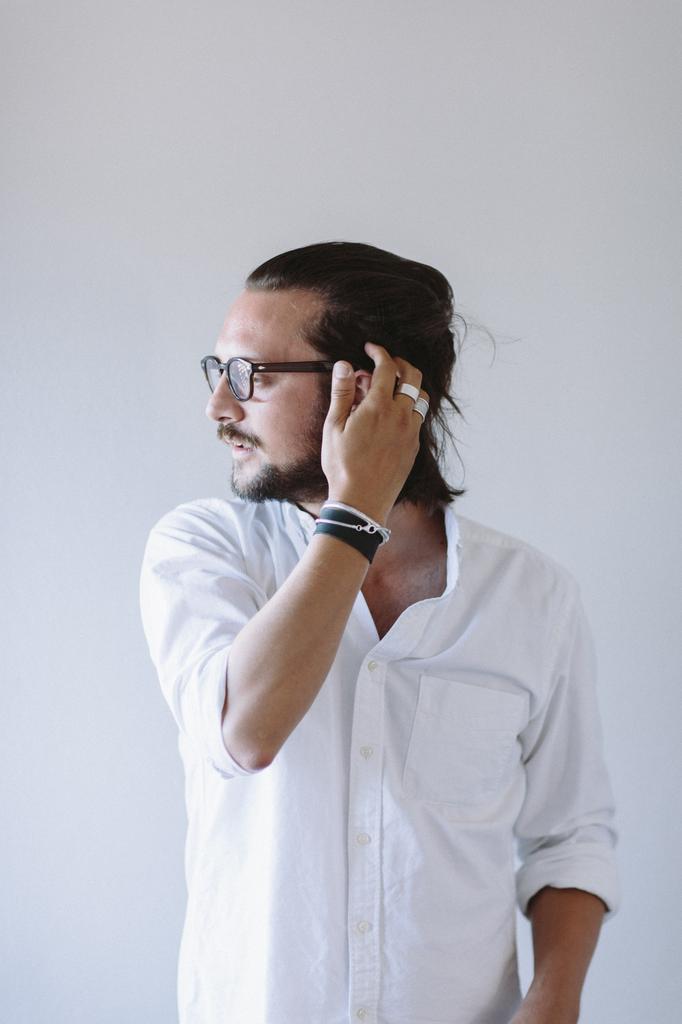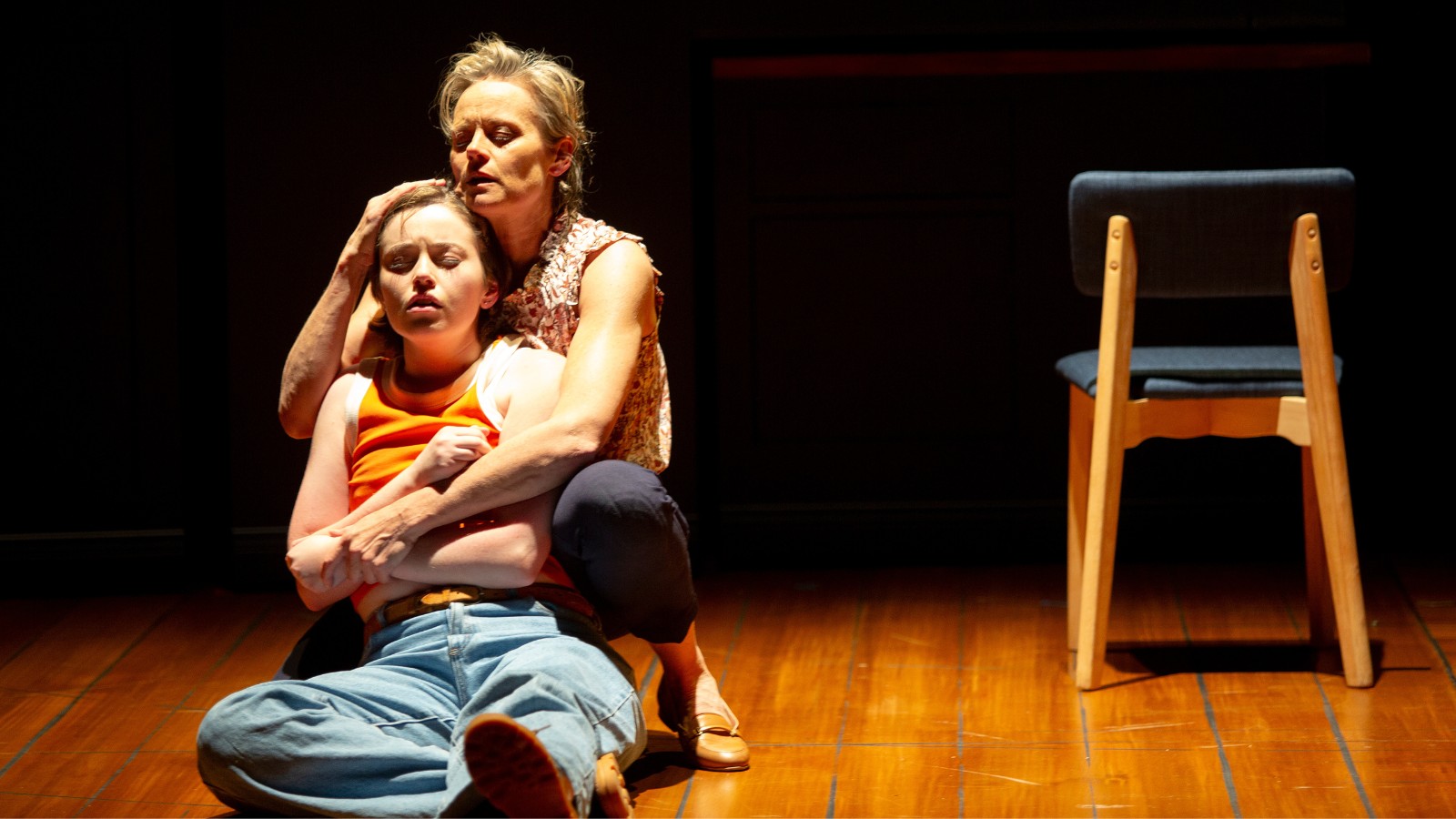Working with Words: Sadvertising by Ennis Ćehić
Ahead of the launch of his debut short story collection Sadvertising, we spoke with The Next Chapter alum Ennis Ćehić.

Can you tell us about the genesis of writing Sadvertising?
I’ve always been drawn to satire. To absurdist ideas. Advertising agencies – where I’ve spent the majority of my working life – are filled with captivating people who can often make the office feel like it is one step away from being a complete satire.
Now, you realise that you only need to distort reality a little bit to get to the absurd, and one late night in an office of an advertising agency in South Yarra – sometime in 2017 – I found myself thinking what would happen to the precious work beliefs of my fellow colleagues if I suddenly took them away. I asked myself what if the Experience Designer had no empathy? What if the Art Director lost their imagination? What if the copywriter stood up on the desk and proclaimed loudly that they were a poet, not a copywriter?
These silly questions turned into the early stories of what would eventually become Sadvertising.
How did your manuscript evolve through your Next Chapter fellowship?
When I got the call that I became I recipient of the award, I decided to quit my job and re-locate to Sarajevo to write full-time. This was in December 2018. I used the prize money to find a cheap apartment and I got to work right away.
I wrote the stories in batches.
I made a firm plan with Nam Le who became my mentor during the fellowship. I’d send him a new batch of stories every second or third month. He’d provide me with some line-by-line feedback, his overarching thoughts, then we’d follow this up with a phone call. For about two hours, we’d discuss the feedback in detail. I found that this process helped me evolve the ensuing stories, so each batch became better as time went by.
After a year, with the exception of a few stories, I finished the first draft of the manuscript. I returned back to Melbourne for the final events of Next Chapter’s program and began editing right away.
A few months later, I submitted the manuscript for full consideration to publishers.
How do you know when something is worth writing about?
The internet has become an all-knowing deity. It has answers for everything—even this question. There’s a formula, a set of boxes that can be ticked to make you believe that, that little something you’re writing, is worth writing about. It can make you feel like it’s commendable. The worthiest piece of writing of all.
Maybe it is, but there are plenty of books out there that would’ve been better as essays. Novels that could’ve just been short stories. Albums that should’ve just released that chart-topping single and 10-episode shows that should’ve never aired.
If the work is any good, it will last, right? I think that’s what James Baldwin said, and it’s hard to disagree. The writing journey is perilous. It’s a deep dive into the why. It shouldn’t be easy, and like many masters have said, only the pure works are worth writing about. If the writer is dedicated enough, they’ll know what work that is.
I’ve always admired the persistence of writers wanting to understand and document this wild life we’re living.
What (or who) influences your writing the most?
Other writers.
I’ve always admired the persistence of writers wanting to understand and document this wild life we’re living. Early on in my writing life, it taught me to dig deeper into myself; to unearth my own, personal questions and find a way to creatively explore the circumstances of my own life.
Do you dream? (What’s the last one you remember?)
I dream, but I don’t make much use of my dreams. It has never been something I held sacred, nor something that I analyse with much interest. However, I do often wonder how a mind accumulates information for dreams.
A little while ago, I dreamt of a woman giving birth to a cordless iron. It was very surreal and I woke up in a dazed fright. Later, I realised that my girlfriend was taking pregnancy iron supplements because she had a serious iron deficiency, so somehow this got interpreted into a very literal image in my dream.
Are there any sentences, or passages, from literature that have remained lodged in your mind since you read them?
Yes, there is in fact – it’s a sentence by Michel Houellebecq from the book Platform.
It has been with me since I first jotted it down in my notepad after reading the book, sometime in 2007, maybe earlier. It goes like this:
Anything can happen in life, especially nothing.
I’ve always loved the bluntness of the sentence. At first, it seems to be leading you somewhere – and you expect a positive place – but then it falls flat with a hard truth.
I’m drawn to it for its cynical yet honest certainty. We all want something extraordinary to happen to our lives, but the reality for most people is quite the opposite.
Where do you write? How does that environment affect your writing?
The act of writing has never been consistent for me, especially early on when I was still studying and then working full-time.
Early on, I didn’t have the discipline to make it a daily habit behind a desk; so I did do most of my work on-the-go, in heated concentration. I think this was that early indicator of the digital age, of my generation. We have all evolved through the smartphone, and so I believe, has the act of writing.
So much of what I write is first developed on trains and trams, train stations and tram stops, at traffic lights, in toilets, on park benches, in the middle of conversations at dinner parties, sometimes on dancefloors, often after meetings. It’s all created in the Notes app on my iPhone.
Now, I only work three-days a week, so the writing is more formalised and consistent. Most of the time it works best if it is treated like a 9-to-5 job, but still, I find that ideation and those first thoughts that make up bodies of literature are still constructed in the same way for me – on-the-go.
Ivo Andrić, the great Yugoslav writer said that writing requires healthy blood, straight thinking and a consistent life. Nowadays, I’m trying to make this my ultimate reality.
What are you reading right now?
I always read multiple books at the same time. It can be very frustrating, but as I generally read with a writer’s mindset, I like to jump from book to book, analyse the ideas and see why it worked. Here’s a few titles I am reading right now;
In the Land of the Cyclops: Essays by Karl Ove Knausgaard, The Struggle (1) by Karl Ove Knausgaard, The History of God by Karen Armstrong, Death and the Penguin by Andrey Kurkov and Where You Come From by Saša Stanišić.
What are you working on now?
I broke through quite a barrier when I wrote Sadvertising. It was definitely the most creative period of my writing life yet. In the midst of all that intense concentration and persistence, my other ideas started to make sense too. I could see them more clearly as bodies of work, not single, individual stories. There’s one in particular that has very boldly revealed itself to me as a novel; a story centred around a protagonist who struggles to reconcile his deeply Western, consumerist mindset to his past life in a Bosnian village.
I want to set the entire work in the actual village I grew up in. I’ve pretty much become wholly consumed by the idea and will re-locate there to develop the book this year.
Lastly, how are you feeling ahead of Sadvertising’s release?
I can’t deny the fact that I’m nervous. I guess it’s only natural given it’s my literary debut, but I’m also very proud of the work. Sadvertising is as much about the way I see the world as it is about who I am.
I’ve come to understand myself through the book. I’ve felt all the feelings, as they say, but in a kind of amplified state of cognition. Honestly, Sadvertising has made me all the more ambitious as a writer.
Related Posts

Read
Read an excerpt from The Almighty Sometimes
30 Apr 2024

Read
What's on in May: Resident Organisation Round Up
29 Apr 2024

Read
Anne-Marie Te Whiu Receives The Next Chapter Alumni Poetry Fellowship
2 Apr 2024

Read
What's on in April: Resident Organisation Round Up
28 Mar 2024

Read
Blak & Bright First Nations Literary Festival returns in 2024
7 Mar 2024

Read
What's on in March: Resident Organisation Round Up
29 Feb 2024
Share this content